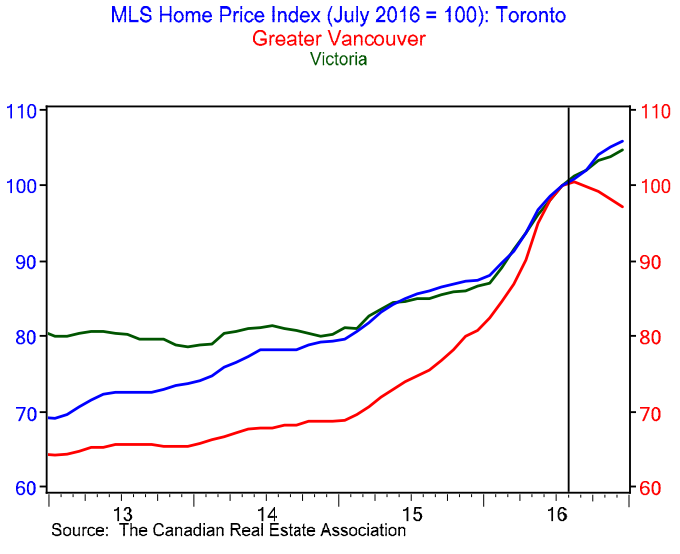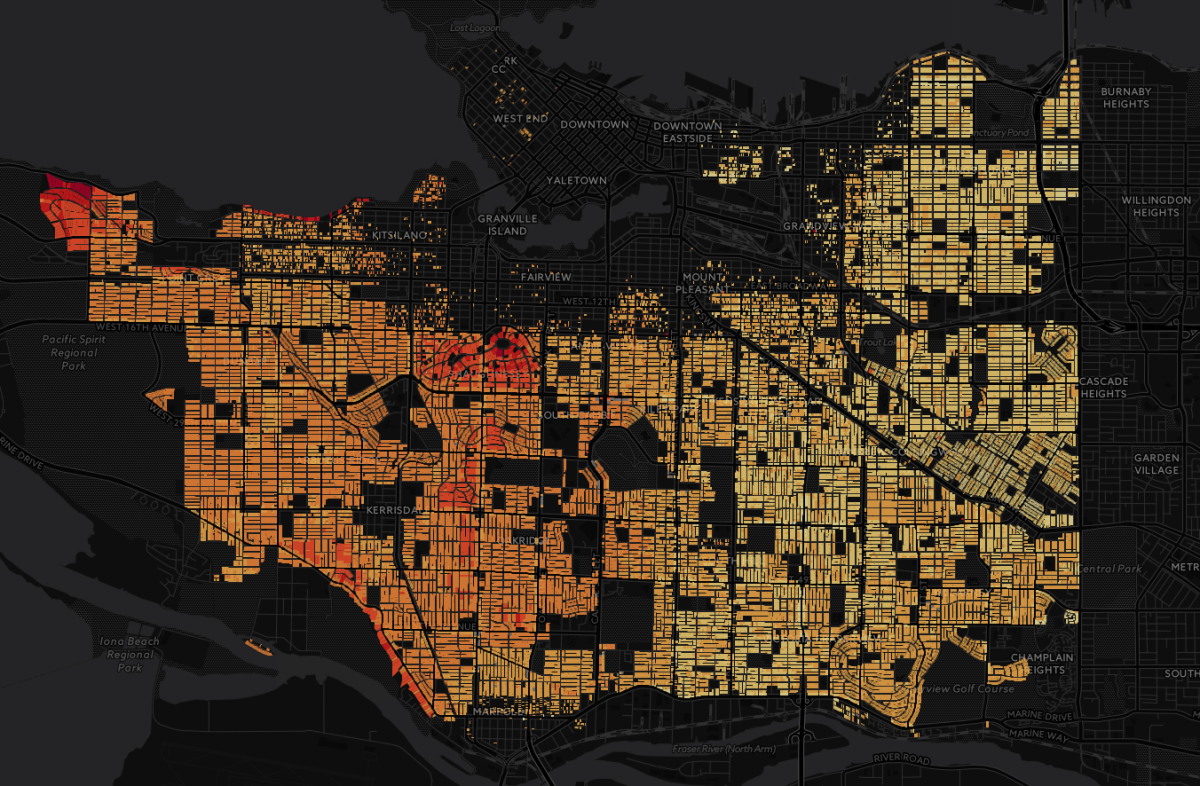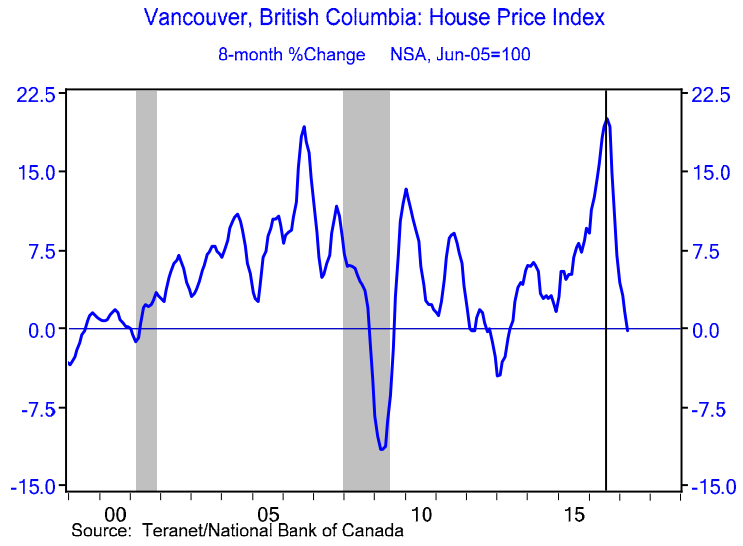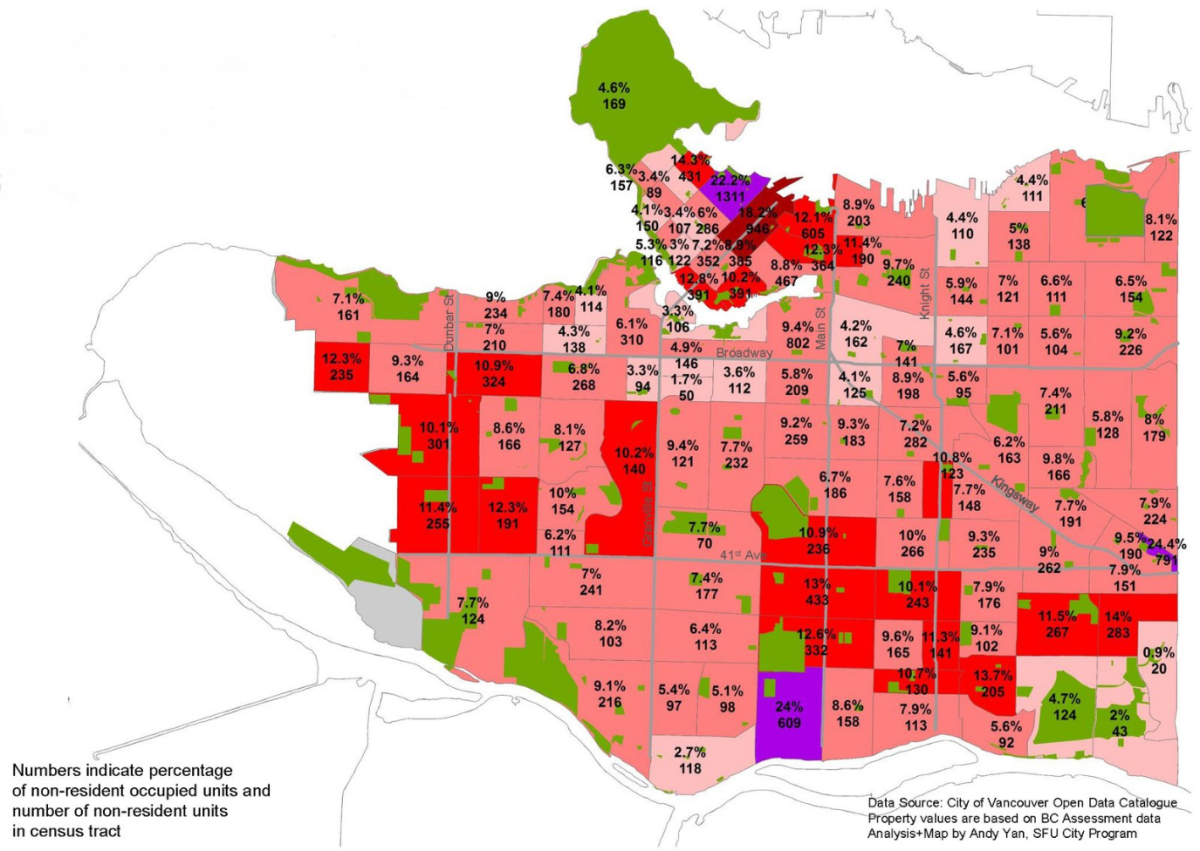A recovery and an awakening.

Two words to describe Vancouver’s housing market in 2017.
Coverage of Vancouver real estate on Globalnews.ca:
The city’s real estate took a hit last year with the introduction of a 15 per cent property transfer tax (PTT) on foreign buyers.
But prices largely recovered before 2017 was halfway done, climbing back to an all-time high in May.
While price gains went back to their old ways, a change of thinking was observed at the City of Vancouver, where officials said they would tackle foreign ownership as part of their housing plan.
It was a dramatic reversal from two years ago when Mayor Gregor Robertson seemed less than convinced about the influence of international cash.
READ MORE: Vancouver plan to build 72,000 new homes – and maybe restrict foreign owners — approved
None of this, however, has made the city more affordable.
With a municipal election on the way, housing is sure to stay front-of-mind for voters who have seen home prices climb to heights that have killed their dreams of ownership.
There’s movement on the file, but Vancouverites have yet to say whether it all came too late to trust the ruling party with another term.
Here are the top stories about Vancouver housing for 2017:
Jan. 19: These Vancouver homeowners made over $1M last year by doing nothing
In Vancouver, you don’t grow your wealth by working. You earn it by doing precisely nothing.
That is, if you’re lucky enough to own a single-family home. Many Vancouverites who did made $1 million in 2016 or more just by possessing them, according to data crunched by Dr. Jens von Bergmann.
He made maps showing properties whose land value grew by over $1 million. And they were all over the city, from the west side all the way out to Grandview-Woodland in the east.
Von Bergmann performed additional study looking at income and estimated that, pre-tax, it grew by $26.8 billion in the two years leading up to 2016.
The value of single-family homes? It grew by over $46 billion.
Jan. 24: B.C. foreign buyers tax really did yank down Vancouver home prices: BMO

Did the foreign buyers tax work? It’s an open question.
But BMO economist Douglas Porter certainly suggested that it pulled down Vancouver home prices in a chart that he issued in January.
The chart showed home prices falling in Vancouver at the same time that they continued to grow in Toronto and Victoria. The analysis was also performed around the time that the federal government introduced stricter mortgage rules.
But the difference between the three cities? Vancouver had its foreign buyers tax in place. Toronto didn’t. And Victoria still doesn’t.
April 27: Micro-suites in Vancouver renting for $1,700 a month

One way to make Vancouver more affordable? Build more and smaller units.
But that didn’t seem to apply to micro-suites that were under construction in the Strathcona neighbourhood earlier this year.
A post on Craigslist advertised 400 sq.-ft. unit for $1,700 per month — a rate that some Vancouver residents found obscene.
May 10: B.C. city now ranks among world’s top 2 luxury home market, and it’s not Vancouver

Victoria joined some elite company — and not everyone would necessarily see that as a positive development.
With a foreign buyers tax in place in Vancouver, the provincial capital started pulling in international investors, who helped to make its luxury market one of the two hottest in the world for 2016, according to Christie’s International Real Estate and Chestnut Park Real Estate of Toronto.
The ranking came in a year that was seen as its “best ever” for luxury home sales.
May 24: Court orders Burnaby couple to sell condo following ugly, long-running battle with neighbours

For only the second time in B.C. history, according to one lawyer, a couple was forced to sell their condo after “breaches of bylaw and bad behaviour in a strata corporation.”

Get daily National news
The Burnaby couple was accused of smearing dog feces in a common area and harassing neighbours.
The couple said the allegations were misconstrued.
June 15: Vancouver home prices may have finally shaken off foreign buyers’ tax: index
Taylor Swift could have written a song about Vancouver’s housing market in the months following the implementation of the foreign buyers’ tax.
It took nine months, September to May, before market prices appeared to have shaken off the tax, according to a home price index.
Prices largely remained unchanged in the months after it was introduced, but they were climbing again by May, and they don’t appear to have slowed down much.
June 22: Behold, Greater Vancouver’s most expensive real estate listing of all time

History was made in June, when Greater Vancouver saw the most expensive home listing of all time hit the market.
Belmont Estate, billionaire Joseph Segal’s property, went on sale for $63 million.
The home, located on the exclusive Belmont Avenue, boasted a Versailles-inspired garden, a private Porte-Cochere entrance and gallery halls big enough to fit as many as 100 guests.
Nice living if you have the money.
June 23: From 2001 to 2016, over 12,000 more Vancouver homes were left ’empty’: city report
With the City of Vancouver ready to implement an empty homes tax, a report showed just how many properties could be subject to it.
The report showed that the number of homes considered empty in the city climbed by over 12,000 units over the past 15 years, to hit 25,495 dwelling units in May 2016.
The empty homes tax was introduced with the object of making more homes available to rent.
But the one-per-cent tax on the assessed value of any units that aren’t principal residences would likely amount to an “ATM fee” for many residents, according to urban planner Andy Yan.
June 24: West Vancouver council threatens to bulldoze $2.6M home

The District of West Vancouver pulled no punches when it came time to tackle a $2.6-million home that staff said was built without permits on 20th Street.
District staff threatened to knock the home down. And they sought an order to do so in October.
July 4: Man fighting strata over Mandarin-only council meetings moves out of Richmond

Andreas Kargut reached his wit’s end when he decided to move his family from Richmond to Vernon after a fight with a strata council over its decision to hold meetings in Mandarin.
He and a group of owners went to the B.C. Human Rights Tribunal over the meetings, and the strata initially seemed willing to compromise.
But the tribunal ruled earlier this month that the complaint could proceed to a hearing.
July 19: New record: $2,090 a month is average cost of one-bedroom rental in Vancouver

Vancouver rentals hit new heights in July, when the average price to rent a one-bedroom apartment hit $2,090 per month, according to Padmapper.
That was up from $1,950 the month before, according to the rental listings website.
But Padmapper isn’t the sole source looking at rental prices throughout the city.
A report by Louie Dinh at Quantitative Rhetoric showed the median rental price of a one-bedroom at $1,900 in July.
Aug. 10: Surrey condo residents rise up against strata after over $40,000 in fines in 1 month, they say

Residents of the D’Corize building at 104th Avenue in Surrey had enough when they said that they were issued as much as $40,000 in fines in a single month.
They alleged that their strata had levelled fines of $200 for driving away before the parking gate had closed, and $400 for not disposing of boxes the way they were supposed to.
Residents said the strata had used security cameras to enforce their bylaws.
The executive director of the Condo Homeowners’ Association of B.C. said laws didn’t allow that. But the strata president disagreed.
Sept. 16: Amid high housing prices, growing number of Metro Vancouver residents living in RVs

So it came to this: home prices so high in Vancouver that people started taking up residence in RVs.
The people doing it said they had little choice. But business owners became concerned about makeshift communities showing up all around them.
Sept. 21: Hong Kong woman wants her ex out of B.C. home. The problem? His name is on the title

A Hong Kong businesswoman thought she could duck the foreign buyers’ tax by putting her Richmond property in her boyfriend’s name.
The pair later broke up. She wanted him out of the house, but he refused to go.
So she went to court in an effort to evict him. The problem? According to the land title and the mortgage, the home was his.
Sept. 28: Richmond, Downtown Eastside have similar levels of low-income, working-aged people: study

With the release of the Census came some fascinating info about incomes around Metro Vancouver.
An analysis of incomes in Richmond, a Vancouver suburb with high home prices, showed that 35.5 per cent of the city centre’s working-age population was in a low-income household.
That was only five per cent lower than what it was in Vancouver’s Downtown Eastside, which has been called, controversially, “Canada’s poorest postal code.”
The reason for this trend? The “suburbanization of poverty,” and undeclared wealth, experts said.
Oct. 15: Rent-to-own arrangement leaves elderly pair out of their home on Thanksgiving

A devastating Thanksgiving for a Maple Ridge couple who found themselves out of their home and into a tent after they entered a rent-to-own arrangement with a realtor who was accused of predatory practices.
Neighbours rallied to raise money for the pair, and they eventually found another place to live — a trailer on someone else’s property.
As for the realtor, his licence was suspended.
Oct. 26: In Metro Vancouver, 43 per cent of renters are living in homes they can’t afford: Census
With a Census housing release came the revelation that nearly half of Vancouver renters are living in homes that they can’t technically afford.
The Canada Mortgage and Housing Corporation (CMHC) considers shelter affordable if it takes up less than 30 per cent of one’s pre-tax household income.
But Statistics Canada data showed that just over 43 per cent of renters in Metro Vancouver were spending more than that.
Nov. 23: Vancouver targets rich neighbourhoods as it looks to jack up its housing supply
In November, the City of Vancouver released “Housing Vancouver,” a plan to see 72,000 new homes built over the next decade and make well over half of them rentals.
As part of the plan, the city is targeting richer areas like Kerrisdale, Dunbar and Arbutus Ridge, which have been emptying out, according to the 2016 Census.
Another action that forms part of the plan? Look at restricting property ownership by “non-permanent residents,” and study how this was done in Australia and New Zealand.
Dec. 19: Foreign buyers may not live in Vancouver, but their money sure does: StatsCan

Statistics Canada released an extensive study of home ownership by non-residents in Vancouver and Toronto, in an effort to look at the effect of foreign ownership.
The study found that non-residents own as many as 19 per cent of condominium apartments that were built in the City of Vancouver between 2016 and 2017, and 24 per cent of these units in Richmond.
StatsCan also found that non-residents own about 4.8 per cent of properties across Metro Vancouver. They also spend more money than residents in parts of the region.
As BMO noted, it’s the “marginal buyer” that sets the price.




















Comments